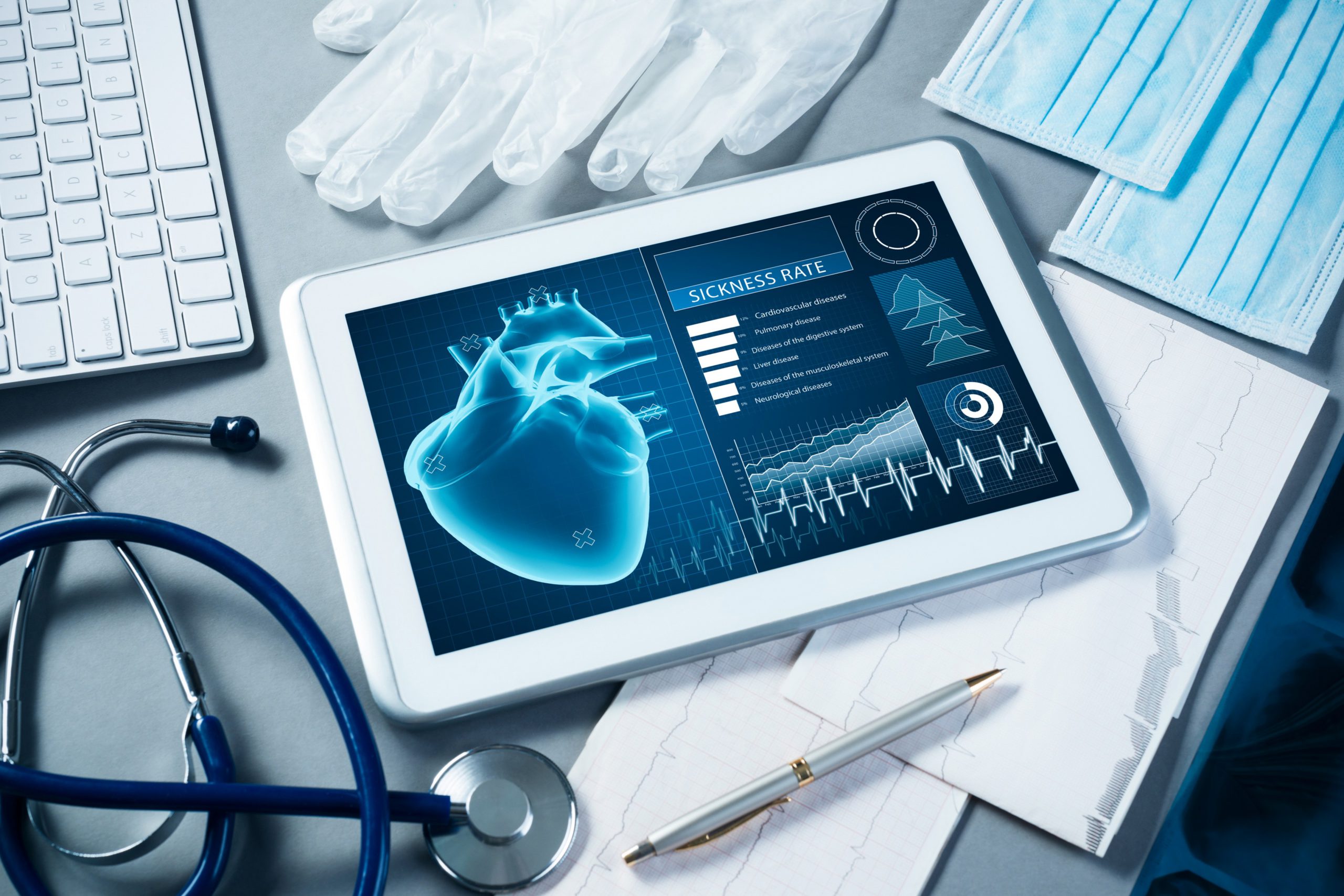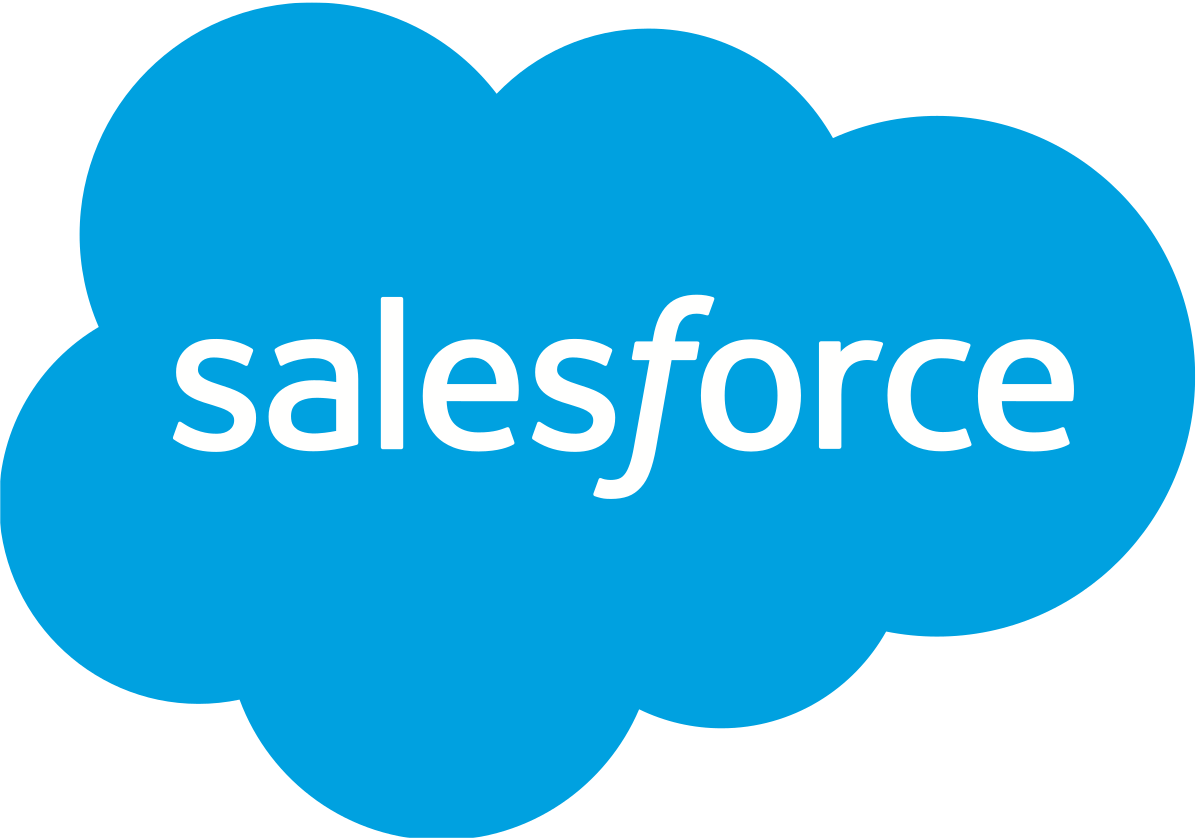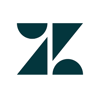Improve patient outcomes with a CRM for healthcare
CRM Software for the Healthcare Industry
Today, patients have thousands of healthcare options at their fingertips. They are no longer a captive market. To get their attention and loyalty, you need more than a license to practice. You need a model of care that treats patients like valued customers.
A healthcare CRM can help you make this transition by building better communication networks, detailed patient profiles, and ongoing engagement with your clients. This doesn’t just ramp up more business; it improves your patients’ treatment outcomes and quality of life.

Features specific to healthcare CRM
- Patient acquisition
Many elements of a thriving healthcare organization depend on attracting fresh customers and spreading your treatment approach to a wider patient base. Integrating a healthcare CRM into your marketing strategies proves highly beneficial. It assists in creating and promoting valuable content and marketing messages to your target audience, boosting patient acquisition efforts.
- Patient relationship management
With a healthcare CRM system, customer support representatives can instantly access pertinent patient data and staff schedules. This enables support agents to respond to condition-related inquiries, schedule appointments with the appropriate specialists, and take informed actions when interacting with patients through various channels like phone calls, text messages, social media, or email.
- Patient data management
Using healthcare CRM, patient data, including personal info, insurance, billing, and appointments, is securely stored in the cloud. This enables medical professionals to access and update records from anywhere, ensuring accuracy, reducing paperwork for patients, and improving communication.
- Security and Compliance
When it comes to healthcare data, safeguarding its integrity is important. A healthcare CRM must provide robust data protection measures and adhere to stringent regulatory requirements. This entails implementing safeguards like encryption, access controls, and compliance with healthcare laws such as HIPAA. These safeguards not only shield against data breaches but also help avoid legal complications.
Best Healthcare CRMs

Thryv is a comprehensive business management platform that offers several benefits to the healthcare industry. While it is not traditionally viewed as a healthcare-specific solution, it can be adapted to support the unique needs of healthcare practices, clinics, and providers.
3.9
Insightly, a dynamic CRM system offers a host of exclusive advantages tailored to the healthcare industry. While not originally built for healthcare, its adaptability makes it a valuable asset for healthcare providers and organizations.
4.1

Kapture CRM offers a helping hand to hospitals, automating tasks to save valuable time and resources. It acts as a central hub for all critical data, consolidating source-specific appointments, tracking performance across different centers and departments, and generating comprehensive patient status reports.
3.5

BluWave, while not originally designed as a healthcare-specific CRM, has proven to be a versatile and adaptable solution for healthcare organizations seeking to enhance patient care and streamline their operations.
3.7
What is Healthcare CRM Software?
Healthcare CRM software is growing in popularity due to the requirement for operational efficiency, as well as the appeal of value-based care and rising consumerism. Medical professionals, clinics, and hospitals utilize healthcare CRM systems to manage their patients, deliver impeccable services and treatments, and take a methodical approach to organize appointments, collect payments, and adhering to rules and regulations. With the help of medical CRM software, you can also generate real-time business analytical data to assist you in making the best decision possible at the correct time. A medical CRM system’s basic functions are as follows:
- Recording and storing patient information
- Communicating and collaborating internally & externally
- Managing time and resources
- Generating analytical reports
Like any good CRM software solution, it helps you manage your contacts.
It is mostly patients in this case. Patient relationship management, or PRM, is a better name for it. It will save their medical and pharmaceutical information, as well as their appointment and communication records.
Patients aren’t the only ones who count as contacts. Doctors and other medical workers can be managed with the best healthcare CRM. It’s also useful for tracking referral networks.
CRM in healthcare is about more than just keeping track of existing patients and relationships. Marketing and sales are also heavily emphasized. This entails assisting clinics or other healthcare professionals in attracting new patients and expanding their practices.
Customer service is another area where healthcare CRM solution may help. It can assist in the creation of online resource centers, the creation of tickets, and the tracking of concerns. It also has a centralized dashboard for all potential and returning patients’ communications.
What are the features of a healthcare CRM?
The implementation of healthcare CRM software will help the clinic to increase the number of customers, and, therefore, to increase profits. In the conditions of market competition, every patient is valued, so that they turn to your clinic, it is necessary to provide quality service.
Installing a CRM for medicine helps:
-
automatically handle incoming calls;
-
keep information about the employment of specialists;
-
send messages;
-
generate medical documents automatically;
-
send examination results to patients by mail.
Finally, online reputation management is a feature of some of the best CRMs for the healthcare business. It can keep track of how people are talking about your clinic on social media and other review sites. This allows you to respond to any criticisms while simultaneously promoting your favorable reviews to the top of the page.
What are the benefits of CRM in the healthcare industry?
Healthcare CRM is used for many reasons, but the overall goal is improving patient experience and the quality of services provided. With it, you get the following advantages:
- Information storage on one consolidated cloud platform. A single resource is created that everyone can access.
- If patients regularly interact with multiple doctors, CRM for clinics makes it easy to track past customer visits.
- Coordination of the provision of medical care by doctors and automation of the work of departments of the medical institution, improvement of the results of the work of the medical institution.
- Thoughtful options of the CRM system for the clinic record all stages of the staff's work. This opens up space for analysis and helps management quickly eliminate problems.
360-Degree Patient Profiles
A healthcare CRM doesn’t just ease patient communication—it records, organizes, and analyzes it. Every communication channel feeds into your CRM, and staff can respond from a single screen. You can also view the history of patient interactions. This allows staff to quickly personalize each conversation and update patient profiles.
The profile can also include physician notes, prescriptions, referrals, records, lab results, and more. At a glance, physicians can familiarize themselves with the patient and detect patterns in symptoms or gaps in care. This allows for more efficient, thorough patient care.
Patient Engagement
Patient engagement uses communication to demonstrate how much you value their business and how you are trying to help them meet their health goals. A healthcare CRM can sort patient data to deliver a targeted message. For instance, you could segment your diabetes patients and provide monthly emails with tips and advice.
CRM for Healthcare: Reporting and Analysis
CRM for healthcare provides analytical tools to help you understand your patients better. You can see trends in patients’ health, such as how much you spend on each patient and what issues you treat most. You can use this information to create better patient outcomes and forecast resources for the future.
Improve Business and Healthcare Outcomes with CRM
CRM for healthcare helps doctors manage their day-to-day workflows more efficiently, giving patients a better experience. CRM also lets you stay in touch with patients from anywhere. Data analysis gives you a bird’s-eye view of each patient and your business overall. To improve patient care—and your bottom line—consider investing in a CRM for healthcare.
How to Choose the Best Healthcare CRM Software for Your Business
It can be difficult to choose the best healthcare software for your company. FindMyCRM has compiled a list of the best healthcare CRM software that are rising in popularity in the market in terms of technology and functionality to assist you in making the best option. You may easily narrow down the possibilities using the filters to meet your needs. Furthermore, the extensive information and genuine user reviews provided for each healthcare CRM system will undoubtedly assist you in selecting the most reliable solution.
After decades in the business, you have a sense of which questions are most important to ask when choosing a CRM platform. We’ve summarized our knowledge into a quick online survey that only takes a few minutes to complete. Our system will then generate a CRM vendor shortlist that is customized to your business requirements.
Meet Patients Where They Are with CRM for Healthcare
Most doctors’ offices rely heavily on telephones and the dreaded automated menu systems. You can reach more patients and make existing ones happier by including more communication channels. A healthcare CRM can connect you with patients via:
● Online: Provide an online knowledge base for patients and an online appointment setter.
● Text messages: Send public health alerts, appointment reminders, and referrals using SMS.
● Social media: Promote your healthcare clinic. Reach new patients. And keep the community informed with CRM’s social media features.
● Email: Do you forget to check the office email account? Have your CRM send an automated response for you.
Really Simple Systems CRM
You and your team can manage all of your customers, prospects, contacts, tasks, sales possibilities, and marketing initiatives in one simple system with Really Simple Systems CRM. You may access your data from anywhere that has an Internet connection – at work, at home, in your hotel room, on the road, on your mobile phone or PDA, or at your favorite coffee shop. The hosted CRM solution is ideal for businesses with many locations and employees that work from home or remotely.
You receive a full-featured CRM system without the hassle of installing and maintaining software on your own PCs when you operate your CRM on Really Simple Systems servers. Every night, Really Simple Systems maintains the software, computers, and data backups for you.
The key features offered by Really Simple Systems CRM are :
-
Account and Contact Management:
Stores all of your customers and prospects in a two-tier data structure: Accounts (companies and organizations) and Contacts (people who work there). -
Opportunity Management:
Tracks all of your potential and closed opportunities, allowing you to prioritize sales efforts and providing visibility into the sales pipelines of you and your team. -
Marketing and Campaign Management:
This allows you to track the success of all your marketing efforts, as well as integrate mass emailing and connect your website to your CRM system for lead generation. -
Customer Service & Support:
Case Management is used to track and escalate support and service requests in order to satisfy service level targets. -
Calendar:
Integrates with and embeds Google Calendar, a free web-based calendar that can be shared easily with coworkers and subcontractors.
Intelligent Medical Software
Intelligent Medical Software (IMS) is an EHR, Practice Management, Office Management, and Medical Billing solution all in one. This program features e-prescribing, practice reporting, a patient portal, and communication capabilities that can be customized to fit any size or kind of practice. IMS is a comprehensive system that combines practice management, billing, and office administration functions into a single piece of software. Whereas other systems require the use of different programs, everything in IMS is connected.
Features:
-
Comprehensive patient charting
-
Clinical decision support
-
Patient portal
-
Patient education
-
Integrations with various interfaces for PHI sharing
IMS provides doctors with customizable medical forms and templates that are specific to each specialty, assisting them in the charting process. Users can enter information such as a patient’s medical history, demographics, lab test results, medication history, allergies, and more into the EHR.
Smart capabilities like speech-to-text and touch-pen recognition are also supported by IMS. Physicians may also boost patient interaction and empower their practices for the future with secure chat tools, a patient app, and a comprehensive telemedicine system. Practice and Office Management tools assist practices in managing their patients and personnel, and the system includes a mobile EHR.
FAQs
What could a healthcare CRM do for your practice?
Any healthcare practice that wants to increase patient communications and internal operations should invest in a CRM system. Finally, a healthcare CRM improves customer satisfaction and helps you retain more patients. Building closer relationships and keeping engaged with patients are both important concerns in an increasingly competitive healthcare industry.
What are the must-have features of a healthcare CRM?
In terms of CRM solutions, there are a plethora of possibilities. However, before investing in a platform, providers and practices should think about the features of a healthcare CRM.
- Data protection
- EHR/EMR updates in real time
- Patient engagement integrations
- Tracking your activities
- Segmentation of patients
What can healthcare CRM log?
A healthcare CRM system can log:
- Information about how to contact us
- History of Contacts (phone calls, emails, SMS)
- Patient information forms (patient intake, content forms, etc.)
- History of insurance and billing
- Previous appointment history
- Reminders about upcoming appointments
- Notes from the patient (whitecoat syndrome, anxiety, phobia of needles, etc.)
- Chronic and/or pre-existing conditions
- Medications and/or therapies used in the past and present
- Allergies
What are the benefits of having a CRM in the healthcare industry?
1. Dashboards, metrics, and reports
Patients’ data is stored in a communications module of a CRM, making it accessible to personnel across the healthcare system who need to arrange and track patient appointments and interactions.
2. Direct Marketing and Mailing Campaigns
Healthcare organizations may improve their services and quality of care by knowing who their patients are, what they need, and what they want. They can also form strong relationships with their patients by knowing who they are, what they need, and what they want.
3. Compatibility with Existing Software
Your new healthcare CRM should be able to integrate with your practice’s existing apps and provide an EMR connection.
4. Availability on Multiple platforms
CRM software is one of the most widely used types of business and healthcare software. About half of CRM users use a smartphone, a cloud-based platform, or a tablet to access the program.
5. Processes for Customer Management
For internal systems to work properly, a significant number of everyday chores must be accomplished. Form filling, reporting, regulatory compliance, appointments, doctor and nurse notes, meds given and on hand, and so on. A CRM can automate all of these tasks that need a precise sequence of operations.
What is a healthcare CRM?
A healthcare customer relationship management (CRM) system is a valuable tool for keeping up-to-date information about patients, providing quality assistance, gathering valuable insights, and managing customer relationships efficiently.
What is CRM in the healthcare industry?
A medical CRM is a system that helps healthcare executives in acquiring, retaining, and engaging patients while also providing individualized services. This medical CRM is useful not just to the hotel business, but also to medical suppliers, financials, and pharmaceutical divisions.
Other CRM Industries
Higher Education
Attract, sustain, and serve your students with CRM for higher education
Insurance
Reduce risk and increase profits with CRM for Insurance
Consulting
Conduct business from your pocket, with a CRM for consultants
Manufacturing
Improve the planning, production scheduling, and communication with a manufacturing CRM.
Real Estate
Manage properties, buyers, and sellers on a unified platform with CRM for real estate.
eCommerce
Improve customer relationships and reach new markets with CRM for eCommerce.
Small Business
CRM is an inexpensive software solution to scale your business.
SaaS Companies
Reduce churn and attract more customers with a CRM for SaaS.
Nonprofits
Raise more money, motivate volunteers, and grow strategically with CRM for nonprofits.
Retail
Add a personal touch to every shopping experience with CRM for retail.
Construction
Modernize your business and deliver projects faster with a CRM for construction.







